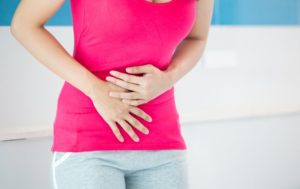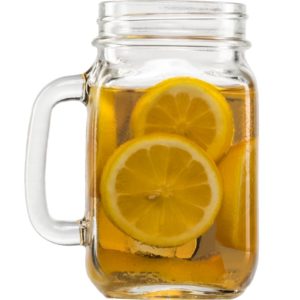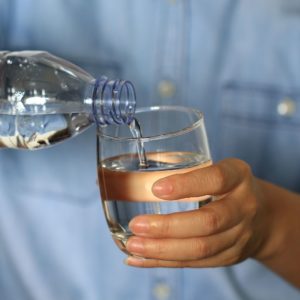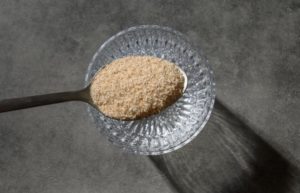Best Ways To Empty Your Bowels
We, as humans, defecate. It's a fact of life. But how often do we actually think about what goes on in our digestive system? How many people have you heard say they are constipated when really it's just that their stool is too big to pass easily? Constipation does not mean infrequent defecation, but rather when the fecal matter takes too long to move through your colon and out of your rectum. To be considered constipated, one must have either incomplete bowel movements or harder-than-normal stool which is accompanied by straining during defecation.
Constipation does not mean infrequent defecation, but rather when the fecal matter takes too long to move through your colon and out of your rectum. To be considered constipated, one must have either incomplete bowel movements or harder-than-normal stool which is accompanied by straining during defecation.
If this is an issue for you, I'm here to tell you everything you need to know about keeping your bowel movements as regular as possible.
Let's start with a brief explanation of how the digestive system works, shall we? After you swallow food, it is pushed through the esophagus and into the stomach by a series of muscle contractions called peristalsis.
In the stomach, food is liquefied by mixing it with hydrochloric acid and enzymes produced by glands that line its inner wall. This mixture then passes from the stomach to small, fingerlike projections on the wall of the intestine known as villi. It takes about three to four hours for digested matter in this form to make its way through your intestines and be eliminated from your body as feces – or what we commonly refer to as poop.
So what can we do to make our bowel movements more regular and easier to pass?
Proper hydration of course! Although water is not digested, it has a natural laxative effect on the bowels, drawing in fluids from surrounding body tissues into your intestines which then add bulk to stool for an easier time eliminating. It is best when drinking water you add a lemon or lime wedge for extra zest, but just plain old water will do the trick when sipped throughout the day, especially during meals. 
The average person needs about eight cups each day. If you are unable to meet this requirement via normal methods such as drinking and eating foods with high water content, you may want to consider taking an osmotic laxative or a ‘stool softener'. I'll explain the difference in just a bit.
If you're eating correctly, you should be eating foods that are high in fiber and low in fat to aid your digestion process. Fiber is the indigestible part of plant foods like grains, fruits, vegetables and legumes (beans). It helps keep waste moving through your intestines by adding bulk to stool; keeping your bowel movements regular and easy to pass.
Make sure you read labels carefully when buying fiber-rich products! Chances are if it's processed, then there isn't much natural fiber left after processing whole wheat into white flour for instance. You may want to look into what they take out of processed foods to make them ‘low-fat' or ‘fat-free'. That is the main reason products that claim to be low fat or fat-free end up containing a large amount of sugar – because it's actually what they replace the fat with!
Also, try not to eat too many fried foods as these can contribute to constipation. Unfortunately, most people think french fries and potato chips are vegetables…
Yes, I've saved this for last but it truly is my number one tip. 
You MUST drink more water! From personal experience, I can tell you firsthand that drinking lots of water on a daily basis does wonders for your bowel movements and keeps things flowing smoothly.
If none of those work there may be some lifestyle changes you need to make. Try taking a walk after dinner or go for a bike ride with the family. You can even try yoga! Yes, I said it – yoga! Just like walking and biking, it helps your digestive system by getting things moving down below.
Don't forget about exercise either; not only does it keep the weight off but also keeps everything functioning well.
Now let's discuss whether the difference between osmotic laxatives and stool softeners is important because they are both used to treat constipation. Osmotic laxatives work by drawing in fluids from surrounding body tissue into your intestines, increasing water content in stool which then adds bulk to help pass bowel movements more easily.
Stool softeners are substances that act directly on a stool to make it softer and easier to pass. They work by helping water to mix in with the insoluble fiber in food, making it softer and more slippery, thus making bowel movements less difficult.
So which one should you choose? Personally, I'd go for both!  Fiber supplements like psyllium husks or methylcellulose are great natural sources of soluble fiber. You can get them at your local health food store or drugstore.
Fiber supplements like psyllium husks or methylcellulose are great natural sources of soluble fiber. You can get them at your local health food store or drugstore.
Just be sure you drink lots of water when taking these supplements because they can have a laxative effect if taken without enough water being consumed simultaneously. And maybe take an osmotic laxative too just to be safe.
The human body is a complicated and fascinating thing. There are so many ways to help it function at its best, which we hope you found helpful.



Leave a Reply